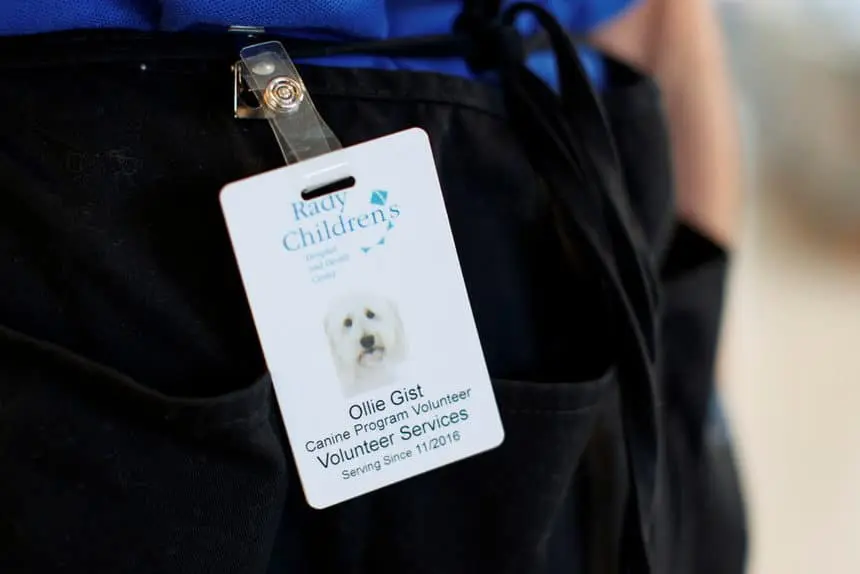Ollie, a 6-year-old Golden Doodle dog, is helping children at Radi Children’s Hospital in San Diego overcome fears of being vaccinated against COVID-19.
Ollie and 14 other dogs in the PetSmart Paws for Hope dog therapy program have been helping children ages 5 to 11 since they could be vaccinated.
In the United States, adults who adhere to conspiracy theories oppose the vaccine.
Kids are just afraid of the needle.
“I saw how many children wanted to be vaccinated, went in the door, thought about the needle and just gave up. The children were upset, crying. And Ollie is sitting next to them and there is no need to hold them as an adult. They are distracted by the down next to them,” said the owner. of Ollie, 75-year-old Christine Gist, a volunteer in dog therapy and a former director of hospital programs.
“It helps them when they’re waiting for the vaccine. Then they smile and know they’ve done it, show their sticker and take a picture with Ollie, they feel like they’ve achieved something great,” she added.
Dogs have the experience of bringing joy to patients admitted to the children’s hospital, many of whom are battling cancer or other insidious diseases.
When COVID restrictions were introduced early last year, dog visits were suspended. They were resumed about three months ago.
“It was quiet without the dogs. The children were bored,” said Carlos Delgado, a hospital spokesman.
“That’s why we were able to return the program. Even a three-minute visit to a dog changes their day. “







